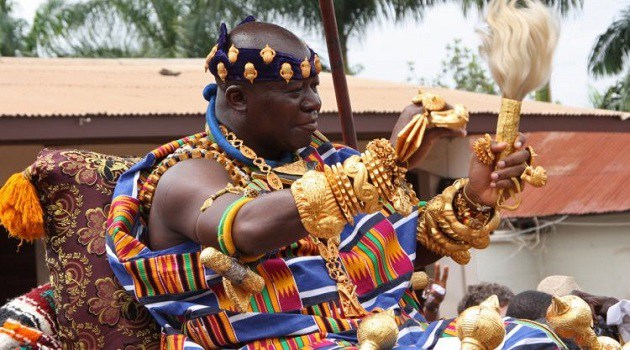Otumfuo Takes Traditional Leadership An Octave Higher
Ghana’s traditional setup, which has been the beacon of the preservation of culture, has virtually remained static, even after six decades of independence, where they are merely seen as the custodians of culture, customary laws and traditions, including history.
Very rarely though, they are described as the initiators and champions of development activities in their respective areas.
Under our current political dispensation, chiefs are barred from active party politics, and merely serve as advisors to government.
This arrangement is probably the main reason why many chiefs virtually ‘hide’ in their palaces and shy away from bigger platforms outside their domains.
In fact, some chiefs are only seen (or heard of) in public once a year, during annual festivals, and if for any reason a ban is placed on that festival, then their plights are worsened.
But it appears the current Asantehene, Otumfuo Osei Tutu II, would not have any of that. He has broken the ‘ice ceiling’ and elevated traditional leadership to a new plane of consciousness.
When in August this year he marked a grand Akwasidae Festival for Asanteman in London, little did anybody know that the Overlord had bigger ideas for the good people of his continent.
The King, who was on a short visit to the United Kingdom at the time, openly marked the festive occasion and stunned many Ghanaians and foreigners in the UK. Reports say some dignitaries, including chiefs, were given the chance to pay homage to him.
The programme, which was massively attended, was also used to showcase some of the rich Ashanti and Ghanaian culture.
Then a few weeks later, the Monarch visited the headquarters of the World Bank in Washington DC, where he urged the leaders of the global financial institution to collaborate with developing countries in the implementation of policies to help accelerate economic growth.
He said the bank was established mainly to help poor nations get out of poverty, and expected that they would stick to that mandate.
He called for attitudinal change and reminded them that culture and tradition could be adjusted to meet Modern demands.
“Culture is not static, it is dynamic. So as time moves, you cannot stick to the old style of culture, especially when it is linked with education. As we move on, we look at various ways of developing our culture and better ways to improve the lives of our people. We cannot live like what we did in the past. We should look for modern ways to transform mankind.”
As if that was not enough, the 16th occupant of the Golden Stool carried his CRUSADE to the General Assembly of the United Nations (UN), where he was virtually an advocate for all traditional rulers in Africa.
THE NEW PUBLISHER wishes to congratulate Otumfuo for demonstrating to the world that African traditional leaders are no longer the conduits for slave trade, and that they have a lot to offer mankind.
To the paper, Otumfuo Osei Tutu II has succeeded in eroding whatever negative perceptions the West must have had about our traditional rulers, and would wish that other chiefs got more involved in global discussions.
No doubt people call him the modern-day King Solomon.


Comments are closed.